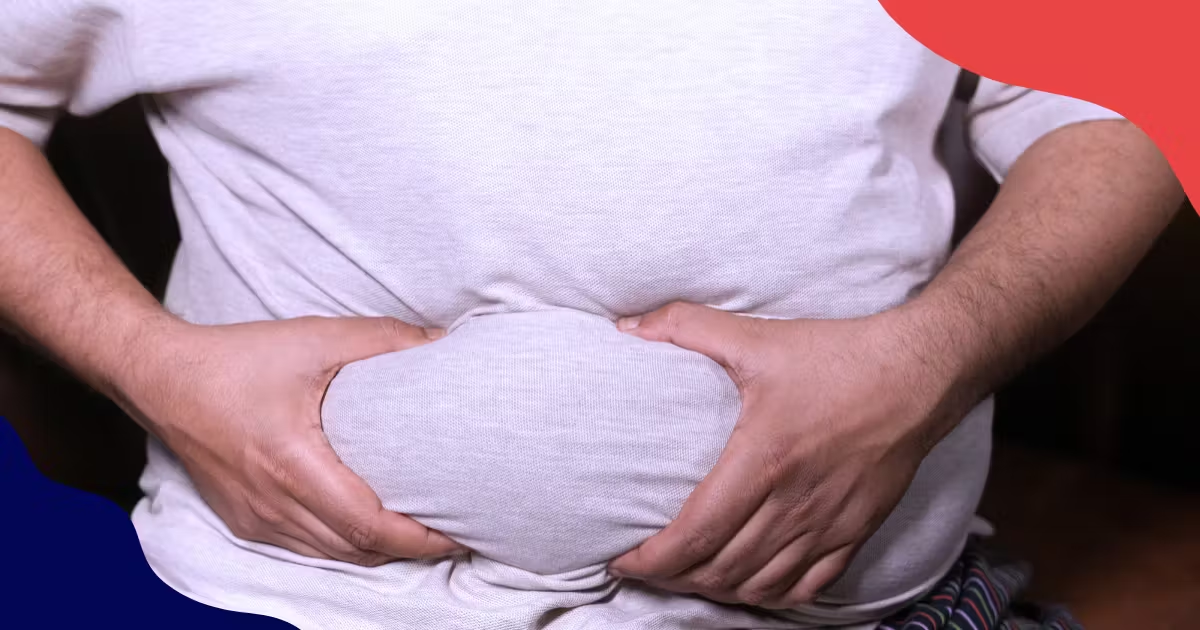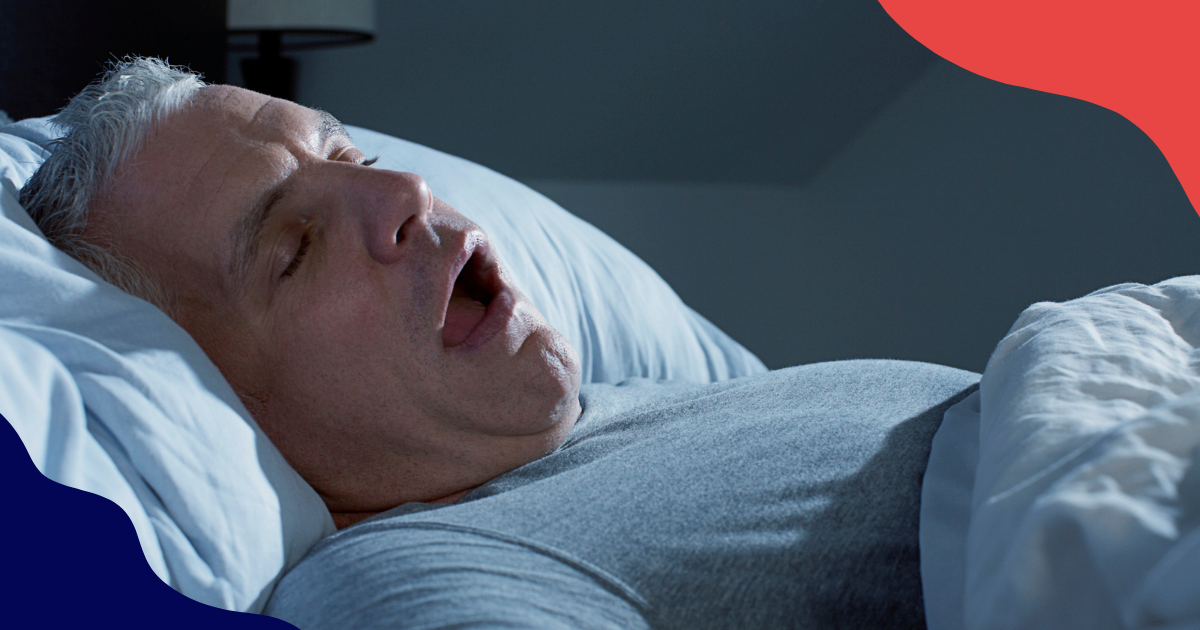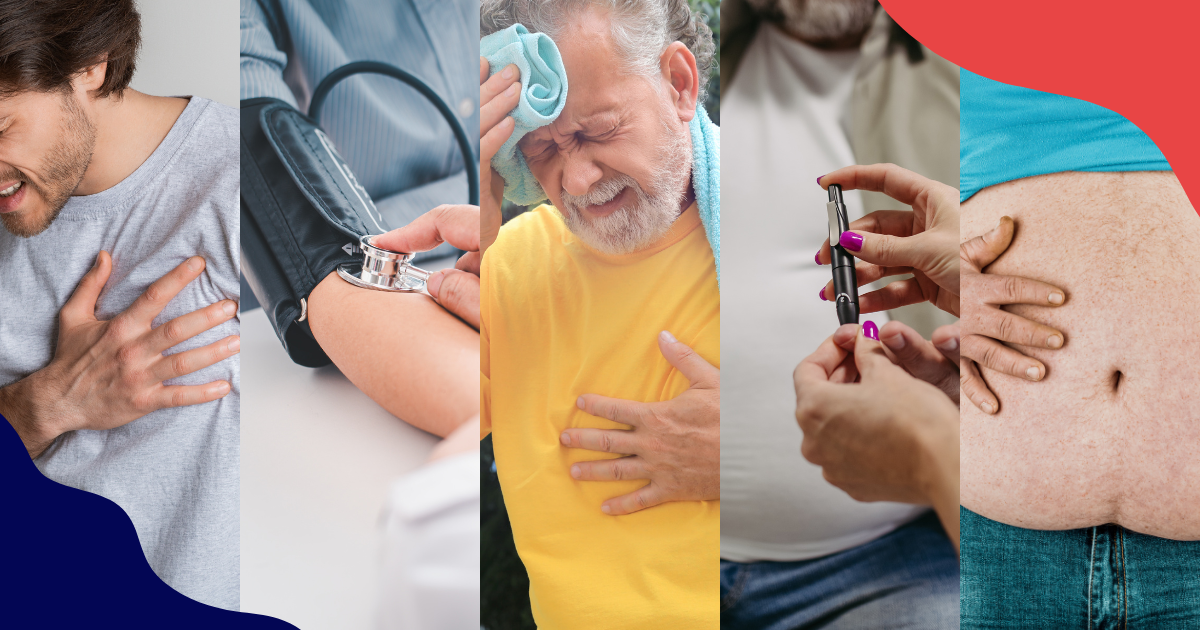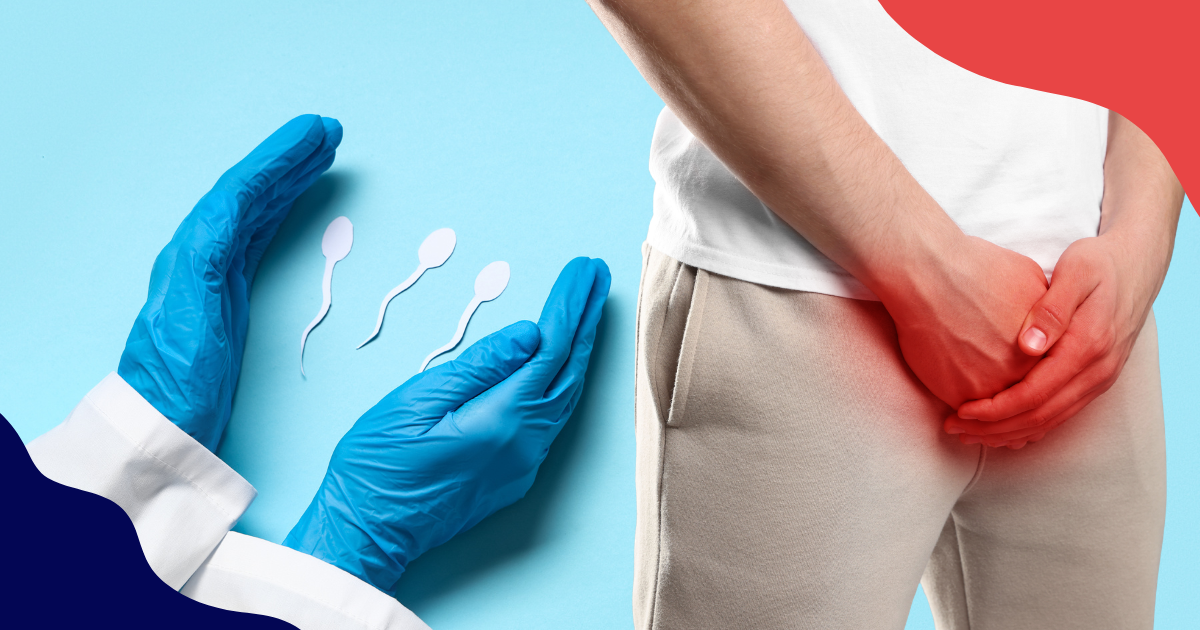As a society, we’ve normalised having a bulging stomach among men by calling it a “dad bod.” The label of “dad bod” implies that a big belly is normal and inevitable as men age. However, this can be detrimental because of visceral fat, a type of belly fat that can cause abdominal obesity and lead to erectile dysfunction.
Are You Unknowingly Obese?
When we think of obesity, we often visualise an individual who has a lot of fat distribution. This typically means someone with a chubby face, thick neck, huge abdomen, and meaty limbs. We usually identify obesity by calculating the body mass index (BMI) and checking if the average exceeds 30.
However, you can be obese even if your BMI is within the normal range (18.5-24.9). Even if you are skinny in other parts of your body, having a belly that is too big can mean that you have abdominal obesity and are at risk of developing erectile dysfunction. You can check your abdominal obesity risk with the following:
- Waist circumference – According to the American Heart Association and National Heart, Lung and Blood Institute, men have abdominal obesity if their waist size is higher than 40 inches or 102 centimetres. Meanwhile, the International Diabetes Federation has it lower at 35.5 inches or 90 centimetres.
- Waist–hip ratio – The waist-to-hip ratio is measured by dividing the circumference of the waist by the circumference of the hips. If the resulting ratio is higher than 0.9, a man is considered to have abdominal obesity.
- Waist–height ratio – The waist-to-height ratio is determined by dividing the circumference of the waist by your height. Both should be measured in centimetres. A result that is higher than 0.5 counts as abdominal obesity.
Types of Belly Fat
Not all belly fats are created equal. Your risk for abdominal obesity and erectile dysfunction depends on the type of fat predominant in your abdomen. The two main types of abdominal are:
- Subcutaneous fat – This is the fat that is stored under the skin. You can feel it by pinching it as it’s soft to the touch. Subcutaneous fat is generally higher in percentage among women. It’s typically stored in their hips, buttocks, and thighs, giving their figure a “pear shape.” It protects the muscles by padding them and helps with regulating your body temperature.
- Visceral fat – This fat surrounds your abdominal organs. Unlike subcutaneous fat, you won’t be able to feel it by pinching it because it’s entrenched deep inside your torso. If you have low subcutaneous fat while having high visceral fat, your belly will feel firm. Men tend to develop more visceral fat around the stomach area giving their body an “apple shape” figure. The percentage of your visceral fat can be calculated with the visceral adiposity index. Research shows that a high score in this is linked to erectile dysfunction.
Excess Visceral Fat and Erectile Dysfunction
Visceral fat serves the function of cushioning your organs, so it’s not entirely bad. However, visceral fat is an “active fat.” It secretes fatty acids and inflammatory substances that contribute to higher triglycerides and LDL cholesterol levels. Abdominal obesity is also linked to increased blood sugar levels and high blood pressure. These parameters make up the metabolic syndrome, which predisposes an individual to being at high risk for erectile dysfunction.
Abdominal obesity is much more associated with metabolic syndrome than standard obesity. This may be because it’s more likely for an individual to have visceral fat if they are skinny. As a result, abdominal fat is a risk factor for cardiovascular disease, type 2 diabetes, liver disease, and stroke. All these diseases directly lead to erectile dysfunction. Among men, abdominal fat has also been shown to lower testosterone levels, which may weaken erection and lower libido.
How to Lose Weight for Erectile Strength
Getting rid of fat, whether it’s subcutaneous or visceral, takes time. Your best bet for reducing your visceral fat and recovering from erectile dysfunction is a healthy lifestyle that’s sustainable. Here are the lifestyle adjustments that are most critical for weight loss and erectile health:
1. Prolong your satiety
People overeat because of having a short-lived satiety. Satiety is the feeling of fullness after consuming food. Most of our food is refined nowadays. The problem with refined food is that the body quickly absorbs glucose. Not only does this make us feel hungry faster, but it also increases our risk of diabetes-induced erectile dysfunction. It’s recommended to switch to whole foods like quinoa, brown rice, and sweet potato. Refined foods also tend to lack fibre, which is another crucial component of both satiety and gut health.
2. Practise intermittent fasting
You can make it so that your body will have no choice but to burn stored fat. Contrary to what people think, exercise isn’t the key to burning fat (though it does burn some calories). It’s intermittent fasting. However, you should make sure to start gradually with 16:8 fasting. Also, it’s best to limit cognitively and physically demanding activities during fasting, as these will make you hungry. A study shows that intermittent fasting coupled with eating organic food is linked to an improvement in erectile strength.
3. Eat only up to 80% capacity
If you feel bloated after a meal, chances are you’ve eaten beyond what is healthy for your stomach capacity. You’re also likely to have consumed too many calories in just one meal while straining your digestive system. Try to eat only up to 80% of your stomach capacity or before you start feeling full. Stop when you feel the appetite-suppressing leptin hormone kick in. The Japanese proverb “Hara hachi bun me” also depicts this by stating that eating just up to 80% prevents illness.
4. Do varied exercises frequently
Exercise alone isn’t enough for weight loss. Depending on the type of exercise, you’re only burning around 150-300 calories compared to the 2,000 calories you’ve consumed for the day. There’s also no such thing as targeted weight loss, only targeted muscle gain. But you should still do exercise to maintain your weight and improve your fitness. Resistance training may increase your resting metabolic rate (rate of burning fat while at rest), while cardio exercise is good for your vascular system, which means stronger erections. Aim for at least 30 minutes of exercise for five days every week.
5. Be protective of your sleep
When people think of weight loss, they often focus on diet and exercise, which makes sense as these do directly impact weight gain or loss. However, other aspects of your health like sleep are just as important. Those who lack sleep tend to eat more than those who’ve had a full night’s rest. This is because the body is trying to compensate for the energy shortage by consuming more food. Not getting enough sleep may also slow down metabolism, decrease testosterone, and trigger erectile dysfunction.
6. Regulate your stress levels
Your blood sugar levels increase when you’re stressed so that you have the energy needed to fight off or survive the danger. Once this passes or if it happens for too long, your body will eventually crave sweets and fats because it wants to restore your energy supply. Apart from this, excessive stress can cause hormonal imbalance, disrupting both your metabolism and testosterone production. Stress can even impact your sexual health, as in the case of erectile dysfunction.
7. Cut down on drinking and smoking
Did you know that alcoholic drinks contain calories? You can manage this by switching to drinks that contain fewer calories or just reducing your alcohol consumption. Drinking is linked to abdominal weight gain, which is why the term “beer belly” has been coined, and so is smoking. Both alcohol and cigarettes contribute to the metabolic syndrome and have harmful chemicals which can result in erectile dysfunction. Additionally, the body concentrates on burning off the alcohol rather than fat, leading to weight gain.
Conclusion
You don’t need to develop a six-pack, but you should keep your belly fat in check for optimal health. Reducing visceral fat protects you from developing chronic diseases and erectile dysfunction. So, if you find yourself plagued with abdominal obesity and erectile dysfunction, follow our tips for switching your lifestyle. And if your erectile dysfunction persists, feel free to book an appointment with us to regain your sexual confidence.




